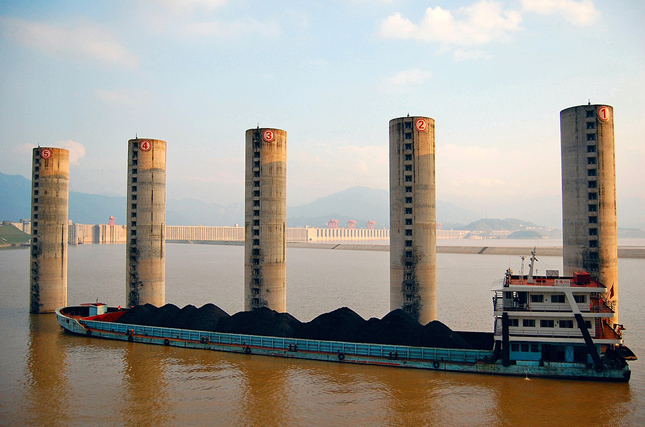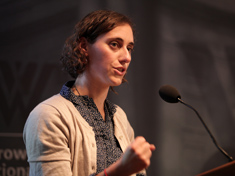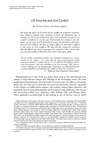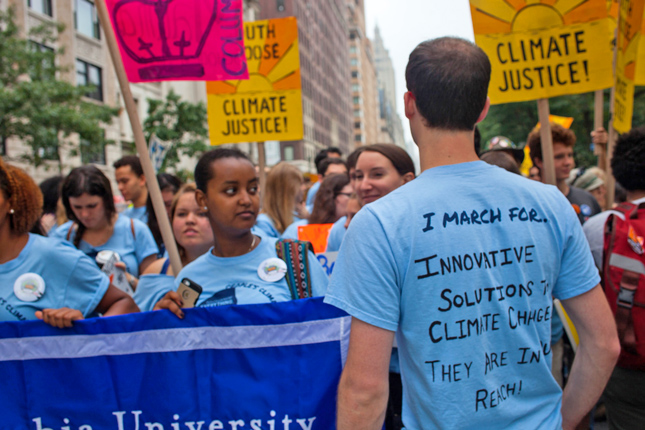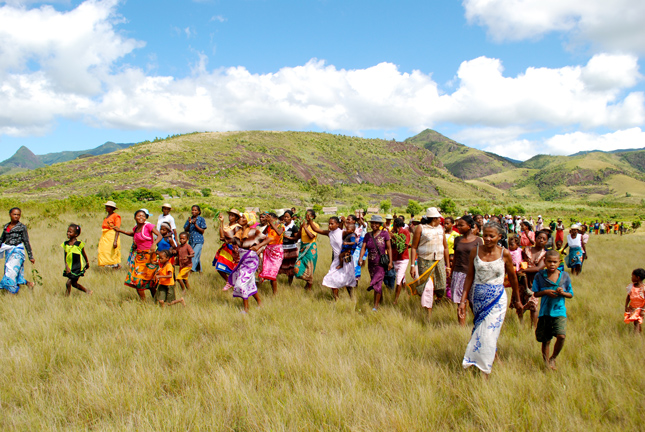-
UN Further Refines Population Projections: 80 Percent Probability of 10-12 Billion People by 2100
›October 16, 2014 // By Elizabeth Leahy Madsen
Seasoned demography geeks know to anticipate the release of the UN Population Division’s World Population Prospects in the spring of odd-numbered years. An off-cycle update published last month in Science, summarizing new results and methodological changes to the projections, therefore provoked a buzz of interest and a mini-flurry of media coverage.
-
While China Waits on Shale Gas, Soaring Energy Demands Create Regional Tensions
›
China’s energy investments are on the move, touching nearly every region of the globe from coal and liquefied natural gas imports from Australia to a recent natural gas agreement with Russia and expanded oil drilling in the South China Sea. [Video Below]
-
Pentagon Releases New Climate Roadmap, Plans for Constrained Training, Challenged Infrastructure, Expanding Missions
›October 13, 2014 // By Schuyler Null
A series of executive orders signed by President Obama since his first year in office requires all federal agencies to begin planning for climate change and produce an updated adaptation plan by May of this year. The Pentagon is a little late, but today they released their second-ever climate roadmap.
-
More Focused Priorities Critical for Sustainable Development Goals, Says Genevieve Maricle
›
Leaders from around the world gathered in New York last month to discuss the replacements for the Millennium Development Goals, which expire next year. The topics included human rights, economic development, justice, disarmament, and terrorism, just to name a few. And that’s a problem, says Genevieve Maricle, policy adviser to the U.S. Ambassador at the U.S. Mission to the UN, in this week’s podcast.
-
The Making of a Tragedy: Inequality, Mistrust, Environmental Change Drive Ebola Epidemic
›October 9, 2014 // By Laurie Mazur
In August, armed men stormed an Ebola clinic in Monrovia, Liberia, releasing infected patients and stealing contaminated bedding. The following month, eight health workers were attacked and killed in a Guinean village as they tried to educate residents about the deadly disease; their bodies were found in a village latrine. Days later, Red Cross workers in western Guinea were assaulted as they tried to collect and bury Ebola victims.
-
Is Food Aid Helpful or Harmful in Conflict-Affected Areas?
› Food aid is one of the most common humanitarian interventions, but it has come under increasing scrutiny from some observers who charge it may not be an effective means of addressing food security and may actually make matters worse. Two recent studies examine the relationship between food aid and conflict, shedding light on both sides of an ongoing debate.
Food aid is one of the most common humanitarian interventions, but it has come under increasing scrutiny from some observers who charge it may not be an effective means of addressing food security and may actually make matters worse. Two recent studies examine the relationship between food aid and conflict, shedding light on both sides of an ongoing debate. -
A. Tianna Scozzaro, Population Action International
I Went to UNGA and All I Got Were These Five Questions
›October 8, 2014 // By Wilson Center Staff
As the dust settles on an exciting United Nations General Assembly (UNGA), I finally have an opportunity to reflect on all that went down, and what it means for the post-2015 development process moving forward.
-
New Network Links Madagascar’s Environment and Health Sectors
›
As the international community seeks to articulate a collective vision for sustainable development following the Millennium Development Goals, a vibrant new network has emerged in Madagascar to advance integrated population, health and environment (PHE) initiatives across this island nation.
 A Publication of the Stimson Center.
A Publication of the Stimson Center.

